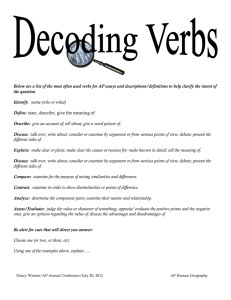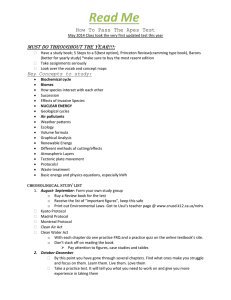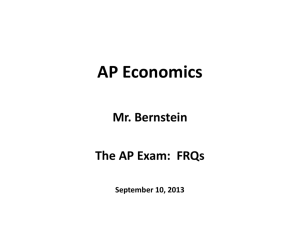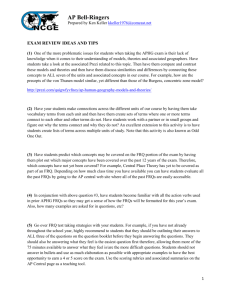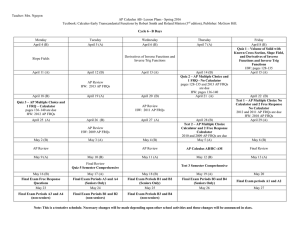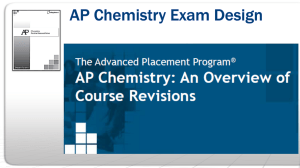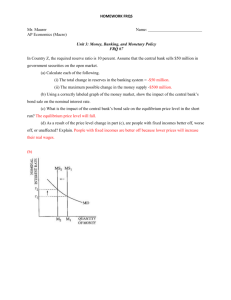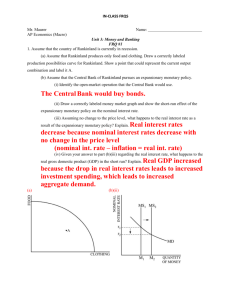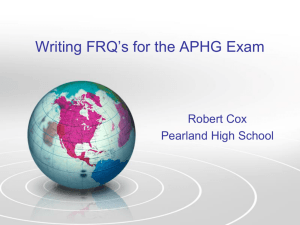Strategies for Teaching Free Response Questions
advertisement
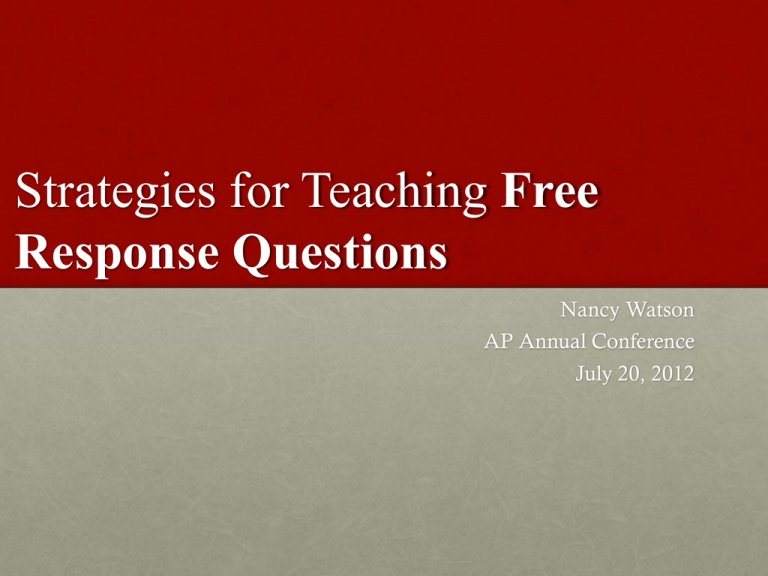
Strategies for Teaching Free Response Questions Nancy Watson AP Annual Conference July 20, 2012 Preparing Students for FRQs • Students are most intimidated by the dread……. FRQ! • Begin early in the year with geographic vocabulary & application of geographic concepts to build their confidence. Exams are the END of a Great APHG Year • Your year long activities will prepare your students for the AP Exam • Use your daily lessons to teach analysis and application (higher level thinking skills!) • Use MAPS and PHOTOS to develop analysis skills for interpreting distribution maps and cultural landscapes • Use MODELS to develop application skills. How do they apply today? How do they not apply today? • Help your students make connections to the APHG themes, content, current events, and real world examples. Free Response Questions • Start with a careful reading of the question • What does the question ask the student to do? Does it want a definition, an explanation, or an analysis? • Geographic terminology is critical to understanding the question • Making geographic connections to Real World Situations is important • Thinking critically is necessary to demonstrate understanding by adding in outside information to explain concepts, often drawing on more than one unit Key words are KEY! • Identify • Define • Explain • Analyze • Identify and Explain • Explain and Give ___ examples Think Geographically! If there is an image, use it! • Stimuli may include a picture, a diagram, a graph, or a MAP • Can you identify the epicenter and migration pattern shown on this map? • Practice interpreting maps with your students Take away the Unknown • Use released FRQs for practice • Start by working through an FRQ together - talk it out - look at the rubric • Have students write an FRQ in 25 minutes (eventually 2 in 50 minutes) • Let students use highlighters to score their own FRQs using the rubrics so they become familiar with the confines of a rubric • Have small groups brainstorm FRQs (use mixed ability groups & coach groups to give confidence) APHG FRQs are Process Oriented • Answer the question in the format of the question - label the parts, but write in paragraphs, not bullets. • No fancy introductions or conclusions, just get to the point and supply relevant content and examples to support the answer • Questions often address themes from across the units - encourage students to think broadly • Use geographic terminology when possible (and appropriate) and include examples • Additional time was added to encourage students to pre-write or outline their answers before they write their final answer • Be SURE that the final answer is written on the lined pages provided and not on the prompt and/or stimulus • Write LEGIBLY!!!! Avoid Common Mistakes • Stress that the students should read the instructions on the back of the FRQ booklet. It will not be read to them, but there is some important information there • Do not skip lines • Write in ink (and legibly) • A strike through voids any content below the strike through. • Do not use bullets or outlines in the final answer • Questions may be answered in any order, but should be clearly labeled at the top of each page in the exam booklet.
